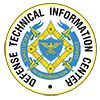Pranay Vaddi
Home / People
Carnegie Endowment for International Peace
Pranay Vaddi is a fellow in the Nuclear Policy Program at the Carnegie Endowment for International Peace. His current research is focused on developing future U.S. nuclear posture and arms control proposals. A lawyer by training, Vaddi brings years of practical experience from his time at the U.S. Department of State, in the Bureau of Arms Control, Verification, and Compliance Office of Strategic Stability and Deterrence Affairs. Vaddi also served in the Bureau of Legislative Affairs.
At the U.S. Department of State, Vaddi served as the interagency New START Treaty Bilateral Consultative Commission (BCC) backstopping policy committee chair, an advisor to the New START Treaty BCC delegation, and worked on the suite of U.S.-Russia arms control and deterrence issues within the office. In addition, Vaddi coordinated working-level interagency policy efforts to support the diplomatic strategy on the INF Treaty and served as a member of expert-level delegations to pressure Russia to return to compliance with the Treaty in the Special Verification Commission (SVC), other bilateral meetings, and participated in consultations with allies and partners. He also aided in preparatory efforts and participated in the 2017 Strategic Stability Talks with Russia.
A recognized expert on nuclear arms control, Vaddi has testified before the House Committee on Foreign Affairs and before the congressional U.S.-China Economic and Security Review Commission. He has also been quoted in numerous publications including the Washington Post, Wall Street Journal, Foreign Policy, the Guardian, and the Economist. He has also published in Lawfare and the Hill, along with numerous Carnegie publications, including “The End of Arms Control?,” which is focused on the possible expiration of the New START Treaty.
Vaddi previously worked as a congressional advisor in the Bureau of Legislative Affairs, managing the State Department’s relations with Congress on arms control, nonproliferation, political-military, intelligence, cybersecurity, counterterrorism, and defense policy issues. Subsequently, he served as the nominations director and counsel, covering ambassadorial/executive confirmations and congressional oversight issues and document requests.
The appearance of an author or a presenter on this DTIC website should not necessarily be construed as association of this individual with the United States Department of Defense (DoD), and the views, information, or opinions expressed herein are those of the author or presenter and do not necessarily constitute endorsement by the United States Department of Defense (DoD).

